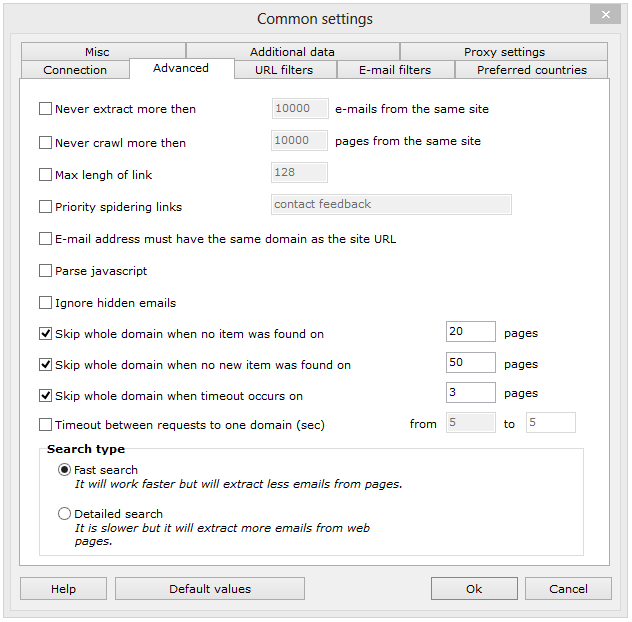Excellent Guide For Choosing A Hematologist Email list
Excellent Guide For Choosing A Hematologist Email list
Blog Article
What Are The Things I Should Consider Before Purchasing An Email List Of Hematologists?
To ensure the most efficient outcomes, you need to think about a number of aspects. This includes whether or the information is accurate, legal, and pertinent to your marketing goals. These are the most crucial considerations to consider. Quality of data and accuracy
Source of Information: Confirm that email list providers are dependable sources. For instance, verify whether they are using professional directories (such as medical databases) or verified opt ins from doctors. The accuracy of the information taken into account will determine the reliability and reliability of the list.
Verification and updates: Request information about the data verification procedure. Email addresses that appear to be not active or incorrect should be removed. It is important to update the list regularly, as healthcare professionals may alter their jobs or even institutions.
Segmentation by specialization: The list must be specific to Hematologists. If possible, segment the list further, for example by location, subspecialty or years of experience, or an affiliation with a hospital. Well-segmented lists help target your outreach more effectively.
2. Legal Regulations
Data Privacy Laws - Ensure that the list is compliant to data privacy laws such as the General Data Protection Regulation in Europe and the California Consumer Privacy Act in the U.S. That means that email addresses need to be gathered with proper consent.
CANSPAM Act - If you are in the U.S. you must ensure that your list complies the CANSPAM Act. This law governs commercial email communications. Failure to comply could result in a penalty and your emails may be considered spam.
Consent to opt-in: The list should include only hematologists with a clear consent to receive emails from third party. Sending unwelcome emails to those who haven't signed up could result in an ineffective engagement or legal problems.
3. Provider Reputation
Check the reputation of the service provider. Check for testimonials, reviews, and case studies to verify that the reliability of the business. A company that has solid history is more likely to deliver high-quality, compliant information.
Transparency: Pick a company who is open about where and from where the data was sourced. Beware of companies that are unclear or vague about the method they use to collect data.
Customer Support: Picking a business with a solid customer support is essential. Support is essential in the event that you require assistance with technical queries, adjusting your list or issues with compliance.
4. Cost as well as Return on Investment (ROI).
Pricing Model: Be aware of the pricing model, whether it's pay-per-contact, flat-fee, or subscription based. Check that the price corresponds with the potential ROI. Also, consider balancing the quality of the list and the quantity with your marketing budget.
Refund or Replace Policy: A reliable company will offer an exchange or refund policy for invalid email addresses. Be sure to read the terms of this policy prior to making a purchase.
Value for money: Compare the attributes of the lists (such as segmentation and accuracy guarantee offered by the company) against the cost. It's not worthwhile to purchase the cheapest list in the event that the quality of data is poor.
5. Data ownership and usage
Understanding the distinction between single use and multiple Use Multiple Use: Understand the terms of use for the email list. It is possible to use the list for only one campaign with some companies, however others allow unlimited use.
Exclusive vs. shared lists: Ascertain if the list is exclusive to your company or shared with other buyers. Exclusive lists usually result in higher engagement rates because the list members are less likely to receive marketing emails from different sources.
6. Data Integration and Format
Integration with CRM or email Tools: Make sure that the email list is easily integrated into your CRM or email marketing platforms. The list should be accessible in common formats such as CSV or Excel to ensure seamless integration.
Easy to Use: Check how easy the list can be managed. Lists that are hard to manage or segment may reduce the efficiency of your campaigns.
7. Ethical Considerations
Relevance of your email outreach to Hematologists. Make sure your outreach emails are relevant to Hematologists. Sending them materials that don't correspond to their expertise could result in low engagement. This can adversely affect the image of your business.
The sending of too many emails could be viewed as spam. Sending out too many emails can damage the reputation of your email sender.
The final sentence of the article is:
The purchasing of a hematologist's list is a great tool for targeted marketing. But, it should be done with a sense of. Be sure to consider the quality of data as well as the compliance with privacy laws, and the credibility of the company to ensure that you receive an accurate, reliable and reliable list. The importance of ensuring compliance with the law, ethical marketing and segmentation will enable you to increase your return on investment while maintaining your brand's image. Check out the most popular hematologists email list for website examples.
What Are The Things I Should Be Thinking About When Buying An Email Listing Of Physical Therapists?
You should take into consideration several factors before purchasing an email list for physical therapy. This includes ensuring that the list will be reliable, legal and effective to promote your business or outreach. Take into consideration the following factors: 1. Quality and Accuracy of the Data
Source of Information: Check that the person who is providing the email list gathers information only from trusted sources such as professional associations (e.g. the American Physical Therapy Association) health directories, health directories, or licensing authorities. The email addresses will be valid and reliable.
Verification Process. Verify that there's a verification process in place by the list service provider to frequently update and verify the data. A reliable service provider will clean the list of email addresses regularly to get rid of any invalid addresses or wrong addresses. This will ensure higher delivery rates and reduce the bounce rate.
Segmentation Options: A top-quality physical therapists ' email list must provide different ways to segment. The filters could include the location (city/state/country) as well as years of expertise, areas of specialty (e.g. orthotics, sports therapy or pediatrics) and practice type (private practice, rehab center, hospital). Segmentation allows you to target the correct audience with tailored messages.
2. Legal Regulations
Data Privacy Laws – Ensure that your email list is compliant in full compliance with both national and local regulations, including the California Consumer Privacy Act, which is applicable to the U.S.A. as well as the General Data Protection Regulation, in Europe. The data must be legally collected and the people included in the list must have consented to it.
Compliance with the CAN-SPAM Act: In the U.S., email marketing campaigns must adhere to the CANSPAM Act, which stipulates that emails must include opt-out options, accurate subject lines as well as a physical mail address. If you ensure that your list conforms to this law, you'll be less likely to be a victim of fines or legal problems.
Opt-in Consent: Ensure that your list of addresses includes people who have agreed to receive marketing communication. Therapists that have provided their consent to being contacted will be more engaged with your emails.
3. Provider Reputation
A reputable list-maker is the best choice. They are known for delivering accurate, high-quality lists. Find testimonials and case studies of other clients. This can help you identify if the list service is reliable.
Transparency: Providers should be transparent in the way they collect and update data. If the provider cannot clearly explain how they collect information, it could be a warning sign that their information is not up-to-date or obtained by untested methods.
Customer Support - Ensure that the service provider has outstanding customer service, should you encounter problems with your list or need assistance with compliance issues or integration of your marketing tools. Responding to customer support can save you time and help to avoid future issues.
4. Costs and Return on Investment (ROI).
Pricing Model: Know the pricing policy provided by the provider. Others might charge on the basis of contacts, while some may provide flat-rate costs or subscriptions. Examining the costs against the ROI expected will help you decide the best solution to launch your campaign.
Check out the return or replacement policy if many of the emails are not valid or bounce. This can protect you in the event that your list does not meet your requirements.
Achieve a balance between price and quality. Don't select an email list solely because of its cost. Lists that are less expensive may have more inactive or untrue emails. This could harm your marketing strategy. Don't choose the most expensive list. Instead, focus on the quality and segmentation.
5. Ownership and Usage of Data
Single-Use and Multi-Use: Understand the difference between lists designed to be used for one purpose only as well as those that you can reuse to run multiple campaigns. Although single-use mailing lists can be cheaper, you will have less flexibility in future outreach. Multi-use databases are better for those who want to run a campaign for a long period of time.
Exclusive and Exclusive. Shared lists: Determine if your list is exclusive or the possibility that other buyers could buy it. It's possible that shared lists are frequently used. This could lead to an exhaustion of email, which can reduce engagement.
6. Data Integration and Format
CRM compatibility: The email list should be sent in a format that is compatible with the customer relationship management system (CRM) or email platform you are using, such as CSV or Excel. The information is easily integrated and handled.
Ease of Use: A well-organized list can be a breeze to filter and manage. It is possible to send more targeted and relevant messages if can identify and focus on physical therapists swiftly by pertinent factors.
7. Ethical Questions
Relevance: Physical therapists are a specialized field, and your marketing efforts should have value. Avoid generic and irrelevant messaging since it could harm your brand reputation and decrease the number of people who engage with your brand.
Beware of Spam Avoid sending too many emails to contacts. If you send too many emails, it could cause complaints about spam and possibly even unsubscribes. Also, it can damage your reputation as a sender.
Conclusion
When buying an email list of physical therapists, you should consider the validity of the data, the legal compliance and the credibility. Lists that are frequently updated and compliant with privacy laws, as well as those that offer segmentation, should be prioritized. A list of high-quality leads will improve your targeting and engagement. Additionally, it will increase the value of your marketing investments. Follow the pro physical therapists email list for website tips.